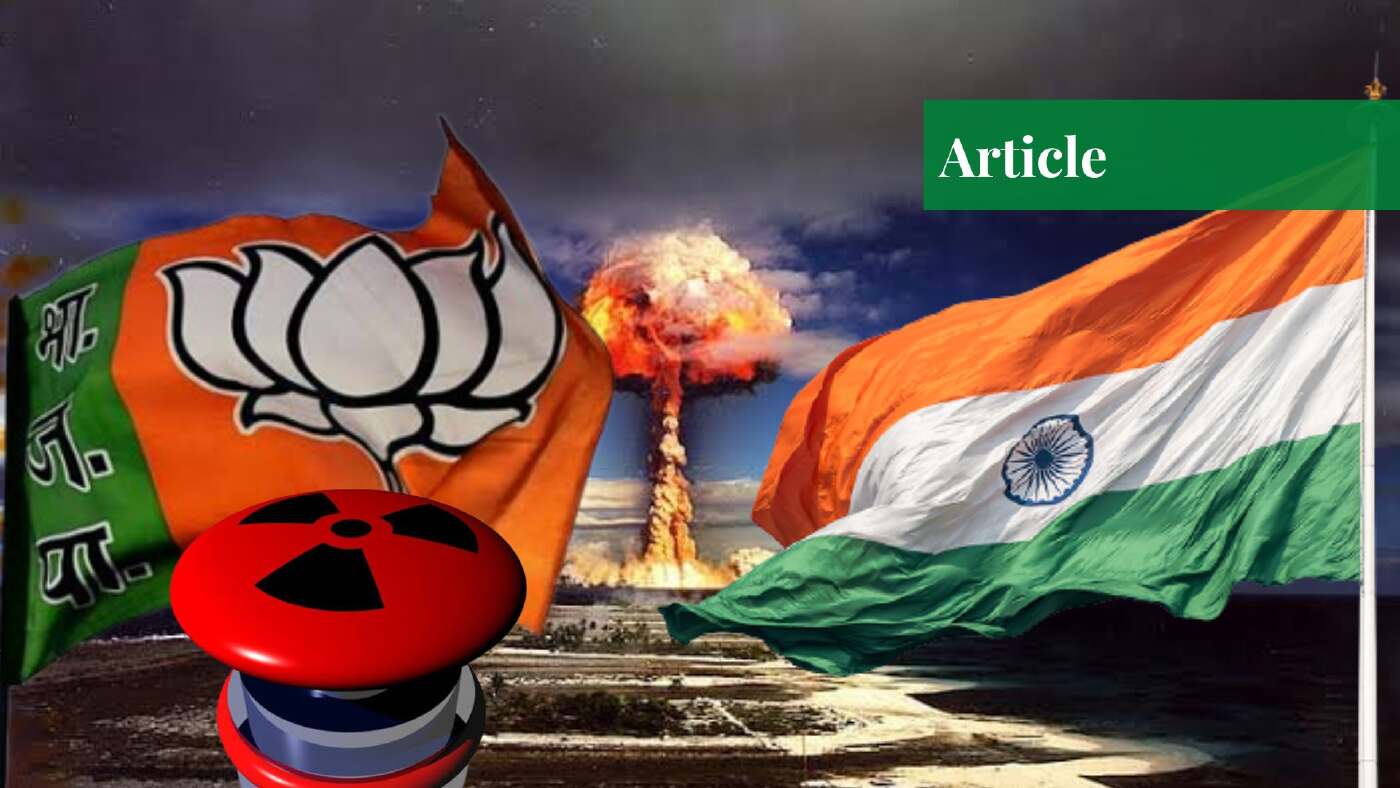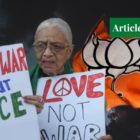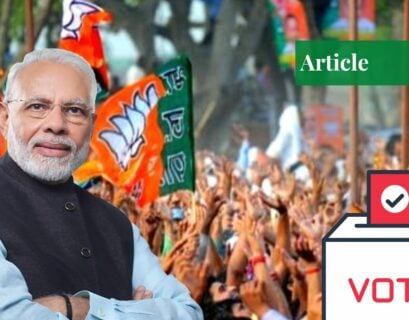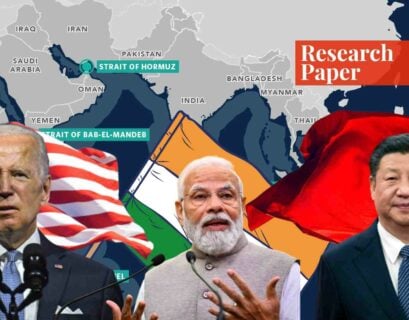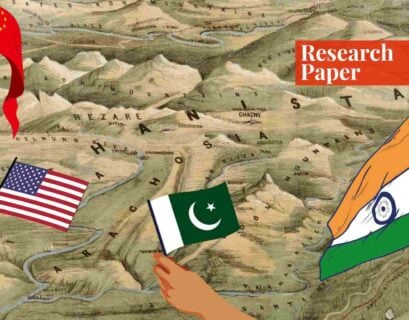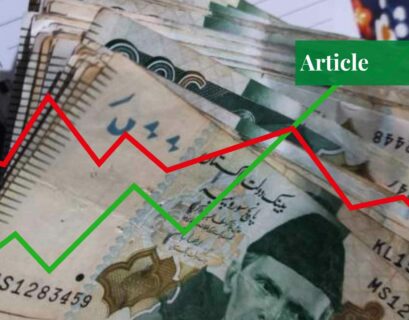Lyba Mobeen is currently pursuing her degree of BS-International Relations from Islamic University Islamabad.
Introduction
The No First Use (NFU) policy, which India celebrated as the cornerstone of victory for being a responsible, neutral, and vigilant nuclear power, since its Pokhran nuclear attacks in 1998, has unfortunately been put into peril. This wave of a shift in the decades-old nuclear policy has been greeted by mixed opinions and views.
What is more threatening is that the majority of government officials and civil officers responsible for formulating and amending official decrees, are welcoming this transition, and are indicating a formal amendment to the current nuclear status of India.
One can draw a clear picture of what the future holds for the Indian nuclear strategy by analyzing the statements publicly and officially made by the pertinent officers. It will assess and evaluate those declarations and present an analyzed framework for the future.
Official Statements
Prime Minister Vajpayee’s response to threats of a Pakistani nuclear attack in February 2000: “If they think we will wait for them to drop a bomb and face destruction, they are mistaken”. In 2014, when speculations regarding BJP victory arose, he said “So a new BJP government… would be in keeping with party tradition – and arguably with India’s national interest – to review nuclear policy by considering one that would leave all options open for India to defend itself,” he said.
The Chief of the Army Staff, General Deepak Kapoor, is reported to have suggested that “the country may have to revisit its “No First Use” (NFU) policy in the light of reports from some credible US sources that Pakistan may have an arsenal of 90 nuclear weapons and may be building up further stocks.”
In 2011, Jaswant Singh, India’s former external affairs, defense, and finance minister, addressed the Lok Sabha, the lower house of India’s parliament. Raising what he called “the most important question that concerns us all globally,” he argued that the policies he had framed in 1998 and 1999 were “very greatly in need of revision because the situation that warranted the enunciation of the policy of ‘no-first use’ or…‘credible deterrence with minimum force’, etc. has long been overtaken by events.”
In 2010, a statement by Shivshankar Menon, the then National Security Adviser, described India’s nuclear doctrine as one entailing “no first use against non-nuclear weapon states”. This implied that the NFU does not apply to nuclear-armed powers. He also said in 2016, “India’s nuclear doctrine has far greater flexibility than it gets credit for.” In 2012, a task force, chaired by P.R. Chari, a former civil servant in India’s Ministry of Defence and a credible analyst, published “an alternative blueprint” of India’s nuclear doctrine.
In June 2014, Chari lamented that “the determinism inherent in India’s nuclear doctrine…is too extreme to gain much credibility. It defies logic to threaten an adversary with nuclear annihilation to deter or defend against a tactical nuclear strike on an advancing military formation.” Lieutenant General B.S. Nagal, head of India’s Strategic Forces Command between 2008 and 2011, made a radical argument in India’s Force magazine, saying that India under an NFU policy “cannot conduct a first strike on the adversary’s counterforce targets, thus allowing the adversary full capability to attrite [India’s] own capability.”
This, resultingly, forces India to resort to counter-value (against civilian targets) strikes, something Nagal regards as a “moral dilemma.” Nagal, therefore, argues “in favor of replacing the no-first-use policy with a policy of “ambiguity” that “does not allow the destruction of the nation and strategic forces at the outset; hence the arsenal is intact for use.”
Speaking in New Delhi at a book launch in November 2016, Parrikar (BJP member and ex-Chief Minister of Goa) said: “A lot of people say India has a no-first-use nuclear policy, but why should I bind myself? I should say I’m a responsible nuclear power, and I will not use it irresponsibly”. He also criticized and devalued the current policy by saying “A ‘written strategy’ is a guideline, but the idea of being unpredictable had to be included in any such strategy.”
The BJP in its manifesto of 2014 promised to “Study in detail India’s nuclear doctrine, and revise and update it, to make it relevant to challenges of current times”, specifically the NFU policy of India. In 2014, BJP President Rajnath Singh told a national newspaper in an interview that “The no-first-use policy for nuclear weapons was a well thought out stand… We don’t intend to reverse.”. However, in 2019, during his recent visit to Pokhran, Defence Minister Rajnath Singh argued that “India’s adherence to the principle of ‘no first use of nuclear weapons is not sacrosanct.”
Speaking at an event in Pokhran, the site of India’s first nuclear tests in 1998, Singh said “Till today, our nuclear policy is ‘no first use’. What happens in the future depends on the circumstances”. Shyam Saran, head of the National Security Advisory Board in 2013, said: “India will not be the first to use nuclear weapons, but if the attack is initiated upon it with such weapons, it would engage in nuclear retaliation which will be massive and designed to inflict unacceptable damage on its adversary.”
India’s Nuclear Doctrine
India’s nuclear doctrine comprises of following highlighted features:
- No First Use (NFU) strategy.
- Negative Security Assurance (NSA) against the non-Nuclear Weapon States (NNWS) until or unless there has been a major biological or chemical attack from others first.
- The use of nuclear weapons would only be in reaction and reciprocation to a nuclear attack and that retaliation would inflict “unacceptable damage” against the host.
- Credible Minimum Deterrence (CMD).
Although all of the characteristics of the doctrine have been under debate ever since the 2003 official doctrine, but, the trait of the NFU policy has been the talk of the town since the BJP manifesto aimed to revise and review the stance in 2014. The aggressive stance of many of the officials is driven by the inadequacy and inefficiency of the NFU strategy at the geo-strategic, inter-state, and regional levels.
This policy of not striking first has uplifted and boosted Pakistan’s adventurism and it has continued to be involved in exasperating measures without being fearful of the consequences, e.g. the Kargil skirmish of 1999, the border standoff in 2001/2002, the attack on the Indian Parliament in 2001, and the Mumbai attacks of 2008 through sponsored militias.
China has also benefitted from this strategy and has been involved in arsenal build-up as well as border confrontations at Ladakh, in the South China Sea and the Indian ocean. India’s deterrence policy has proven futile and neither helped India foster its security goals nor helped India maintain its nuclear dominance in the region. Many of the strategists and public office holders including Prime Minister Narendra Modi, who have given their verdict in the favour of First Use policy, are driven by Hindutva ideologies.
Hindu Nationalism aims to accomplish two important objectives: the supremacy of Hindus and Hinduism in greater Asia and the creation of Akhand Bharat. India, under the Modi regime, marks a shift from its traditional policy of moderation and neutrality towards hostility and belligerence, and reviewing NFU towards FU is another pearl in the strings of fascist and ambitious Modi motives.
It needs to be pointed out that Rajnath Singh, the Defence Minister of India, who in 2014, declared the nuclear doctrine to be a precise and well-crafted document is today cynical and has a doubtful perspective towards the same declaration. The answer to that ambiguous behavior is the anti-Muslim and anti-Pakistan rhetoric that the Modi administration has inculcated amongst the masses over time through the Pulwama incident, the Balakot incident, and the revocation of articles 370 and 35A, among others.
Conclusion
With the ideological motives acting as the driving force behind the current BJP and Modi government, hinted at and conveyed multiple times through their public assertions, it is most likely that India will soon revise its current official nuclear doctrine. This will undoubtedly escalate regional tensions with its immediate neighborhood and put the entire South Asian and, by extension, global peace at stake.
If you want to submit your articles and/or research papers, please check the Submissions page.
The views and opinions expressed in this article/paper are the author’s own and do not necessarily reflect the editorial position of Paradigm Shift.
